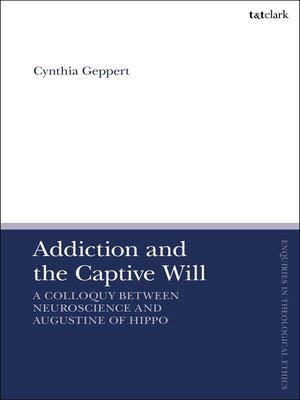Addiction and the Captive Will
ebook ∣ A Colloquy between Neuroscience and Augustine of Hippo · T&T Clark Enquiries in Theological Ethics
By Cynthia Geppert

Sign up to save your library
With an OverDrive account, you can save your favorite libraries for at-a-glance information about availability. Find out more about OverDrive accounts.
Find this title in Libby, the library reading app by OverDrive.



Search for a digital library with this title
Title found at these libraries:
| Loading... |
Twenty-first century neuroscience has discovered that in some severe cases, addiction may so constrain human freedom that the will is only able to choose to use substances of abuse. At this advanced stage, substance use has become the primary driver of salience, co-opting
and subsuming other moral priorities and human rewards. Scholars have investigated Aristotle's concept of akrasia as an ancient mirror of this understanding and there have been some preliminary discussions of Augustine's concept of the divided will as it bears on addiction.
No detailed and comprehensive exploration of the work of Augustine has yet been undertaken as it relates to three contemporary models of addiction: the choice, learning, and brain disease models. Augustine's psychological awareness, his mastery of ancient theological and philosophical thinking, and his enormous and enduring influence on both Catholic and Protestant theology, make him an ideal subject for such research. This incisive book argues that Augustine's doctrine of the captive will offers a theological parallel of each of these contemporary models of addiction.
and subsuming other moral priorities and human rewards. Scholars have investigated Aristotle's concept of akrasia as an ancient mirror of this understanding and there have been some preliminary discussions of Augustine's concept of the divided will as it bears on addiction.
No detailed and comprehensive exploration of the work of Augustine has yet been undertaken as it relates to three contemporary models of addiction: the choice, learning, and brain disease models. Augustine's psychological awareness, his mastery of ancient theological and philosophical thinking, and his enormous and enduring influence on both Catholic and Protestant theology, make him an ideal subject for such research. This incisive book argues that Augustine's doctrine of the captive will offers a theological parallel of each of these contemporary models of addiction.






